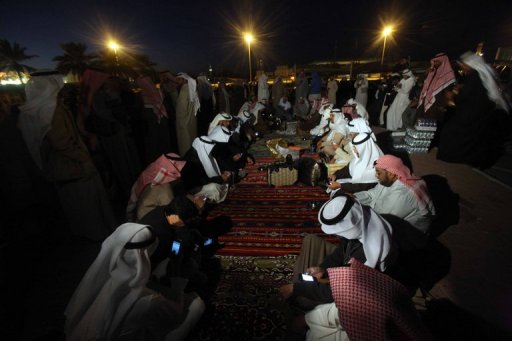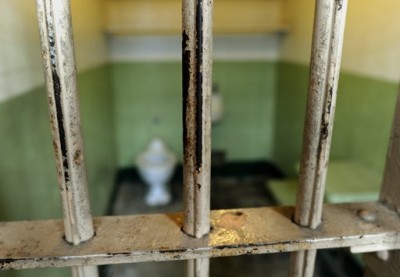In an interview with Daily News Egypt, El-Araby said: “The government is preparing for the Egypt Economic Summit to be held next February in Sharm El-Sheikh by developing studies for several projects aiming to attract EGP 600bn worth of investments to help reach a growth rate of 4%.”

(DNE Photo)
He points to the start of planning for the establishment of a holding company for mass transit and another for operating with a start in restructuring of the National Investment Bank.
What are the fourth quarter indicators of the fiscal year (FY) 2013/2014 and the estimates of the first quarter of the current FY?
The indicators of the fourth quarter of the last FY 2013/2014 includes 3.5% growth in the economy, the highest in the last three quarters, while the unemployment rate fell to 13.2%.
The first quarter of 2014/2015 saw the implementation of government investments estimated at four times the same period last year. The first quarter always experiences a slowdown in implementation and withdrawal of government investments estimated at EGP 67bn, including EGP 50bn funded by the state treasury.
The estimated results for the first quarter are a good indicator and will restore the confidence of international markets and recovery after the reform of the energy system. The world is beginning to see a recovery of the Egyptian economy.
Has the government settlement of investor disputes accelerated the restoration of confidence of markets and investors?
The settlement of investment disputes emphasises the respect of the state’s contracts and agreements and its protection of investors. The Minister of Housing finalised the settlements of nearly 11 investment disputes with the Urban Communities Authority, leaving only two disputes to be resolved within the housing sector.
The Legislative Reform Committee, formed by President Abdel Fattah Al-Sisi, presents a strong message that the state will protect the investor with all of its will and will protect public money. The conflict between the government and the Egyptian-Kuwaiti Company over the Ayat land is still ongoing.
What measures is the government taking to prepare for the upcoming economic summit?
The government seeks to complete a series of economic and social reforms to show the business community and financial institutions during the summit that the new Egypt has a vision that includes a plan of real reform. This began being implemented with the economic recovery plan, as well as with several national projects that have been initiated in addition to the plan to construct the new road axis.
The government has only completed 70% of the plan to stimulate the economy during the last FY, and we did not hide this fact.
When will the holding company, which is expected to create job opportunities and has capital of EGP 10bn, be established?
The holding company includes 20% shares which belong to the government and 80% to the private sector. The company will include subsidiaries in every governorate, and this month will witness the completion of the formation of its Board of Trustees whose responsibility will be to ensure the establishment of procedures and gathering funds from the private sector.
The government will inject EGP 2bn in the company, but the Board of Trustees will be responsible for gathering funds from the private sector and determining the rate of returns, investments, and conducting feasibility studies to be submitted to the private sector.
The partnership with the private sector will be based on mutual profit – ‘the government profits and the private sector profits’. The projects undertaken by the holding company should vary between recycling waste and transport as standard projects over the 27 governorates in addition to projects presented by the local community.
Are you targeting specific sectors for the investment partnership?
The government is conducting consultations with various investors in the different sectors to contribute to establishment of the new company. Listing the company in the stock exchange is still being studied.
The dues of the foreign partners are a problematic issue for the government that requires unconventional solutions so as to not strain the budget and assures the partner to increase production to overcome the energy crises? What about the new scheduling plan for repayments and how do you see the borrowing with interest rate repayment solution? And when will the first batch be repaid and in which currency?
We face many difficulties in the paying of dues to foreign partners, which is estimated at around $5.9bn. There is a tri-government committee made up of the ministries of Finance and Petroleum and the Central Bank [of Egypt], which is responsible for holding negotiations for the scheduling of these payments, in a move to increase the production rates of foreign partners and overcome the energy crisis.
Are there negotiations with Arab investors, such as Sheikh Saleh Kamel, to establish a new investment fund?
Saudi investor Sheikh Saleh Kamel, in coordination with several investors, is considering setting up a huge investment fund in the Egyptian market divided between the ministries of Religious Endowments and Investment. [We are expecting] to see the establishment of this fund by year’s end.
There are no issues in the establishment procedures for funds, but the government put the regulatory frameworks for such funds in the framework of governance.
When will the government begin the second phase of restructuring energy subsidies and will they be completely lifted with the circulation of the smart cards?
The government intends on subjecting prices of petroleum products to supply and demand in a time-period ranging between three to five years. But in the current FY, the government will work on the dissemination and distribution of fuel smart cards to the majority of vehicle owners only.
The first phase the government implemented is a reform package that helped end the smuggling of fuel, which exhausted previous governments and wasted a large chunk of public money.
We printed nearly 2.5m cards and they have already been marketed. But, the traffic authority says that the total number of vehicles that will receive the smartcards is estimated at 4m. There is ongoing coordination with the ministries of Petroleum and Finance as well as the Traffic Authority to complete the distribution of all smart cards before the end of the current FY. This will be followed by a period of at least six months of evaluation and experimenting with the new system without increasing prices or quotas or quantities.
The current government will complete its work by the coming 30 June but will not take the decision to raise the prices of petroleum products. After 30 June 2015, we will have a newly elected government and parliament – only then may we determine quotas and quantities. We will be ready from 1 July 2015, if approved by parliament.
Leaving prices to supply and demand does not mean the abolition of subsidies. Targeting subsidies and more to those who need it, while working on improving the mass transit system currently in place to serve citizens during the three to five year period already set by the government, will free the prices of petroleum products while retaining subsidies for those who need it.

(DNE Photo)
You talked about the government’s intention to improve the mass transit system; what are your plans to achieve that?
We are currently planning to set up a new company for special public transport with investments ranging between EGP 4bn to 5bn, with the participation of the private and public sectors. National banks and the National Investment Bank, as well as insurance companies, are all willing to contribute to this new public transport project.
The pricing of this service will be decided in coordination with private sector, but the contribution rates between the government and private sector have yet to be determined. The planning of this new company will be planned in line with the new subway lines.
The government requires that the manufacturing of buses to be used in the company to be produced locally; the manufacturer is also required to be a contributor in this project.
The procedures for the establishment of this company are nearing completion, with the government working on completing the construction of metro lines at an unusual speed. The development of river transportation will take place during the current year, and EGP 5bn will be used to develop the railway system.
Can you provide us with details regarding the reform plan and restructuring of the National Investment Bank affiliated with the ministry? What has been done to resolve financial entanglements with government agencies?
The National Investment Bank was established as a bank to increase rates of development, but it veered off course. Its main sources of funds come from the postal service, insurance surplus, pensions, and government investment certificates. Historically, the bank funded projects by government agencies which made losses and did not pay premiums, so debt was continuously increasing.
The mixing of economics and politics is the reason behind the current economic situation and financial indebtedness between the bank and several government agencies, but a committee headed by the Prime Minister is now working on resolving financial entanglements between national investments and all government agencies.
The bank will only finance economic development projects that generate a profit for the bank, in order to end a long history of financing profit-losing government projects which only results in the increase of financial entanglements and indebtedness.
National investments will contribute to the reform of some of the indebted government agencies for example the Egyptian Radio and Television Union, which maximises the return of any funds pumped into those entities.
Which authority is responsible for the coordination of the Egypt economic summit to take place in Sharm El-Sheikh next year?
There is a ministerial group headed by general coordinator Naglaa Al-Ahwany, the Minister of International Cooperation. [The authority] includes the ministries of Investment, Finance, Planning, Trade and Industry and they are responsible for making all the necessary arrangements for the economic summit, which is expected to be held next February in Sharm El-Sheikh. The Ministry of Investment is responsible for the private sector projects while joint projects between the public and private sectors are handled by the Ministry of Finance. As for trade projects, they are handled by the Ministry of Trade and Industry.
There is a specialised company that will be responsible for the preparation and coordination for the economic summit which may be a government company. The government received huge offers from the private sector to coordinate the summit, saying the government benefited very well from past lessons and it is very possible that it [the government company] will organise the summit.
What are the sizes of investment that the government plans to attract through the summit? Will the summit only be limited to investments or will there be “cash and oil” aid? And what are the most important projects that are expected to be presented during the summit? And have you made the necessary feasibility studies?
The government is planning to attract investments worth EGP 600bn during the summit to achieve a growth rate exceeding 5% versus 3.5% during the fourth quarter of 2013/2014. Investments worth EGP 337bn have only achieved a 3% growth.
The governments is serious in its presentation of its clear investment projects and are backed by feasibility studies that include all national projects such as the development of the Suez Canal Axes, the Golden Triangle, the North West Coast and ports, and East Port Said.
Is the government currently negotiating new Gulf aid?
The government is currently not negotiating for new aid, be it or oil or financial aid. We are still continuing to negotiate on the $8.7bn from the UAE, saying that the grant element in it is very high, but the regulatory frameworks for the start of converting petroleum products is still awaiting the decision of the political leadership.




